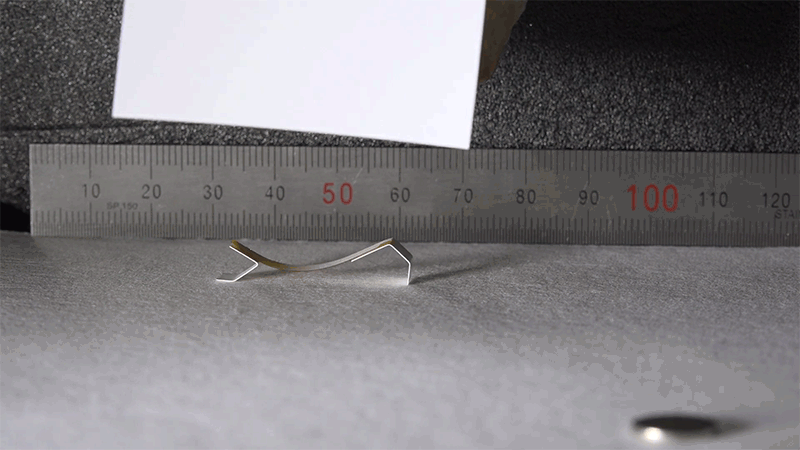Last updated January 25, 2018 at 11:22 am
Scientists have created small robots which do not require any batteries or electricity. Instead, they’re powered solely by the humidity in the air. They’re inspired by plants, and just like plants, they’re… slow.
One major challenge of robotic engineering is finding a power source that doesn’t require constant monitoring, as batteries and electricity do. Inspired by how certain plants expand in response to humidity, scientists have developed simple robots that are instead powered by an all-natural energy source: moisture in the air.
 The small robots, called hygrobots, were influenced by hygroexpansion – the process used by pine cones to open out by absorbing water from their surroundings.
The small robots, called hygrobots, were influenced by hygroexpansion – the process used by pine cones to open out by absorbing water from their surroundings.
The tissue structure of these plants was mimicked using a nanofibre structure which quickly swells and shrinks in response to changes in humidity.
The nanofibres were coated onto an immobile membrane, which flexed depending on the swelling or shrinking of the fibres.
This structure allows the hygrobots to wriggle and scrape their way around in response to changes in humidity.
The hygrobots’ structure is composed of two layers: clusters of moisture-responsive nanofibres layered next to an immobile polymer.
As well as making them crawl around a humidity controlled chamber, the team from Seoul National University set it a further test.
They dipped a hygrobot in an antibiotic solution and made it crawl around a bacteria-enriched agar plate.
The plate was successfully sterilised by the robot, delivering its antibiotic load without any artificial energy supply.
The next step for the scientists is to try to develop other robots which can be controlled depending on the concentrations of different gases in the air.
It is hoped, however, that these moisture controlled hygrobots could potentially be used for medical uses on wet skin, or even sterilisation of medical equipment.
The research was published in Science Robotics.
Images from Shin et al, Science Robotics
Related:
From chocolate factory to surgery – the milliDelta robot
Follow your Interests in Robotics
Our robot medicine future – heart huggers and micro biohybrids
Follow us on Facebook, Twitter and Instagram to get all the latest science.































































































































































































































































